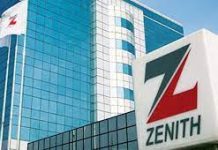Bank Directors Association of Nigeria (BDAN) has called for the review of necessary regulations to prevent the deposit money banks from paying insurance on deposits sterilised with the Central Bank of Nigeria (CBN).
The directors said banks have been compelled to insure all their total deposits whereas about 50 per cent of funds are available to the operators for lending and other investments. They called on the CBN and the Nigeria Deposit Insurance Corporation (NDIC) to, as a matter of necessity, begin the process of reviewing the regulations to insulate banks from paying premiums on risk-free deposits.
The position was advanced at the Bank Directors Annual Summit 2022 held in Lagos last week. The cash reserve ratio (CRR), the proposition of deposit held by CBN, was raised from 27.5 to 32.5 per cent last month. But experts said the effective CRR is about 50 per cent, suggesting that only half of the bank deposits are available to banks for lending and investment.
President of the Governing Council, BDAN, Mustafa Chike-Obi, said the banks could not continue to insure non-trading deposits. He wondered why the funds should be insured when it does not carry any risk and sits in the vault of the apex bank.
He also questioned the contributions of banks to the Asset Management Corporation of Nigeria (AMCON)’s sinking fund, saying AMCON’s existence could be perpetual. There have been arguments against the contribution of banks, which are owned by private investors, to the funding of AMCON, a creation of the Federal Government.
Chike-Obi said the different impositions by the government and its agencies are killing the growth and profitability of the banks.
“Why do banks pay deposit insurance on money that has been sterilised at the CBN as CRR? If the cash ratio has been sterilised by the CBN, there is no reason to insure it and so at a minimum, all discretionary normal CRR that are at CBN should not be subject to the calculation of deposit insurance. This is saving close to N50 billion,” he said.
But Managing Director of NDIC, Bello Hassan, said the deposit premium payment is important to enable the Corporation to fulfill its obligation to the sector in event of failure. He argued that certain banks pay much because of their high-risk level. He charged the directors to engage their respective management to justify their NDIC premiums.
In his keynote address, the Founding Managing Director, Agusto & Co, Olabode Agusto, also pointed at the activities of the regulators and the Federal Government constituted major risk factors to the sector.
He lamented the impacts of hostile regulation on return on equity (ROE) and profitability, stressing that the industry was barely surviving.
“The pre-tax return on asset (ROA) for Nigeria’s banking sector was 1.7 per cent in 2021 and the same percentage is projected for 2022. In Ghana, a country that has the same long-term rate of inflation as Nigeria, pre-tax ROA was 4.6 per cent in 2021. Why is the profitability of Nigeria’s banking industry significantly below expectations? We estimate that above-normal CRR, negative real interest rates and AMCON levy reduce the banking sector’s ROA by about three per cent.
“These rules, therefore, impair the ability of the banking sector to build capital from internally generated profits. Because of this, capital buffers in the banking industry are thinning. In 2017, the banking sector had an equity capital to assets ratio of 14.2 per cent, by 2021 this ratio had gone down to 10.4 per cent. Can the banking industry shore up its capital by raising additional capital from the markets? Yes, but at a great discount. Investors will surely be wary of investing in an industry that is seen as under-performing because it delivers ROE that is below the rate of inflation,” Agusto explained.
He urged the regulators to urgently rethink how to help the sector enhance its capacity to generate capital from internally generated profits. He recommended key guides to the regulators in managing reserves and other parameters even as he argued that the effective CRR had reached 50 per cent as opposed to 32.5 per cent official requirement.
His recommendations include allowing the risk-free rate, measured as the average yield on 364-day treasury bills to be, at least, 100 basis points above the long-term rate of inflation (which he estimated at 12 per cent), reducing cash reserve requirement to 15 per cent or paying interest on CRR above 15 per cent and ensuring that AMCON levy does not extend beyond the additional five years.
Agusto, however, said the banks would necessarily need to cash up with fintech to retain the profits from transaction money. According to him, customers want efficiency, lower cost of transactions and safety of funds. He noted that fintech offers the first two in abundance while improving on the third, a threat to non-responsive traditional banks.
Are these new entrants going to change the structure of the banking sector in Nigeria significantly?
“They can certainly use technology to scale and customize products for their customers, Nigeria has a young population that will embrace their services, they are not burdened by the costs associated with brick and mortar but do they have the discipline and capacity to manage large businesses?” he asked.












































